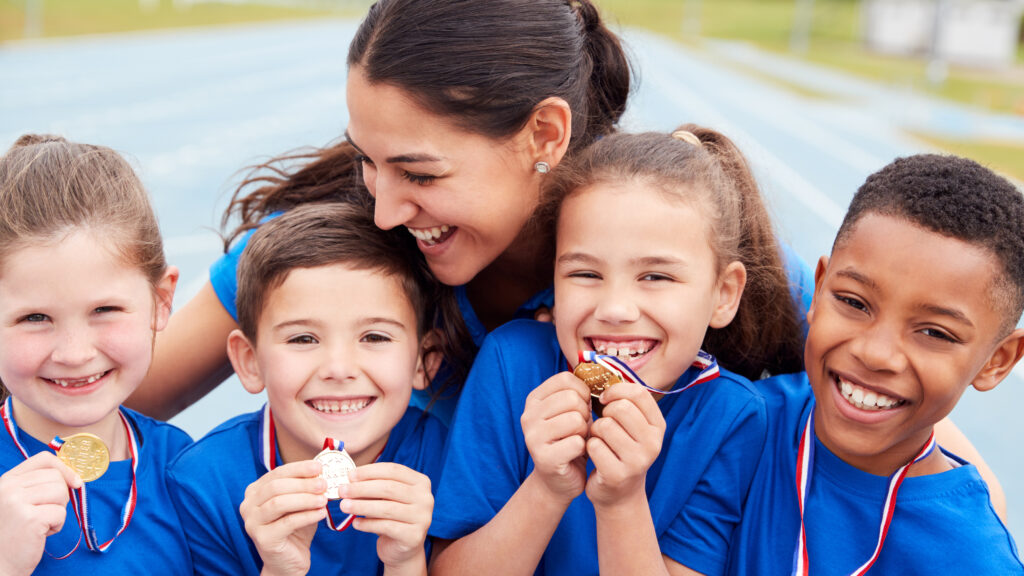The Paris Games and Kids: Opportunities to Champion Respect and Safety

Championing respect both on and off the field is critical for culture change in sport. As you watch coverage of the Games in Paris, here are some tangible actions you can take to open dialogue and reinforce respectful and safe sport environments with the young athletes in your life:
Six Ways to Reinforce Respectful and Safe Sport Environments During the Paris Games and Beyond
- DO talk about the time, dedication and persistence it takes to prepare for and compete in the Olympics and Paralympics. To open lines of communication, encourage your child to talk about their own training. Ask: What do you enjoy about it? What do you find challenging?
- DO speak up if inappropriate comments are made about athletes, especially remarks that are discriminatory, sexualized or otherwise offensive. Make it clear that all bodies are different and no one shape is better than another.
- DO talk about the diversity of different skills and talents that exist across Olympic and Paralympic events. You can use descriptions like fast, strong, strategic, great endurance, excellent coordination, accurate aim, phenomenal team player, etc.
- DO pay attention to any potential instances of emotional or physical misconduct (which could include throwing things in anger, yelling at and/or pressuring an athlete to continue despite injury). Use the opportunity to discuss better choices and emphasize the importance of supportive and safe athletic environments. For example, “That athlete seems upset. Do you think throwing that racquet makes other people feel safe or unsafe? Can you think of other ways to express frustration without making others feel unsafe?”
- DO celebrate moments of good sportsmanship and teamwork. Use instances where athletes are being supportive of one another to reinforce that sports are about so much more than winning. For example, “Did you notice how that athlete encouraged their teammate even when they missed the goal?”
- DO listen when a child talks about their experiences in sports, positive and negative. If a child in your life shares that they have experienced or witnessed abuse or misconduct inflicted by someone in the U.S. Olympic and Paralympic Movement (or if you suspect something has happened), you can make a report. Explore our tips for responding to abuse disclosures.
“As we cheer on athletes at the Olympics and Paralympics, it’s important to remember that respect starts at home—on the practice fields and while watching athletic events. What happens at the Games, reverberates across all levels of sport. Set an example for the young athletes in your life by finding opportunities like watching the Olympics and Paralympics to champion respect and safety.”
Ju’Riese Colón, CEO of the U.S. Center for SafeSport
“As spectators and fans of sport, we are responsible for confronting how sport culture can be harmful by calling attention to problematic behaviors. But, it’s also important to celebrate the good when we see it—like athletes advocating for their own mental health or engaging with sportsmanship despite the extreme pressure of elite competition. Shining a light on both the negative and the positive can have ripple effects.”
Monica Rivera, Vice President of Prevention Education at the Center
